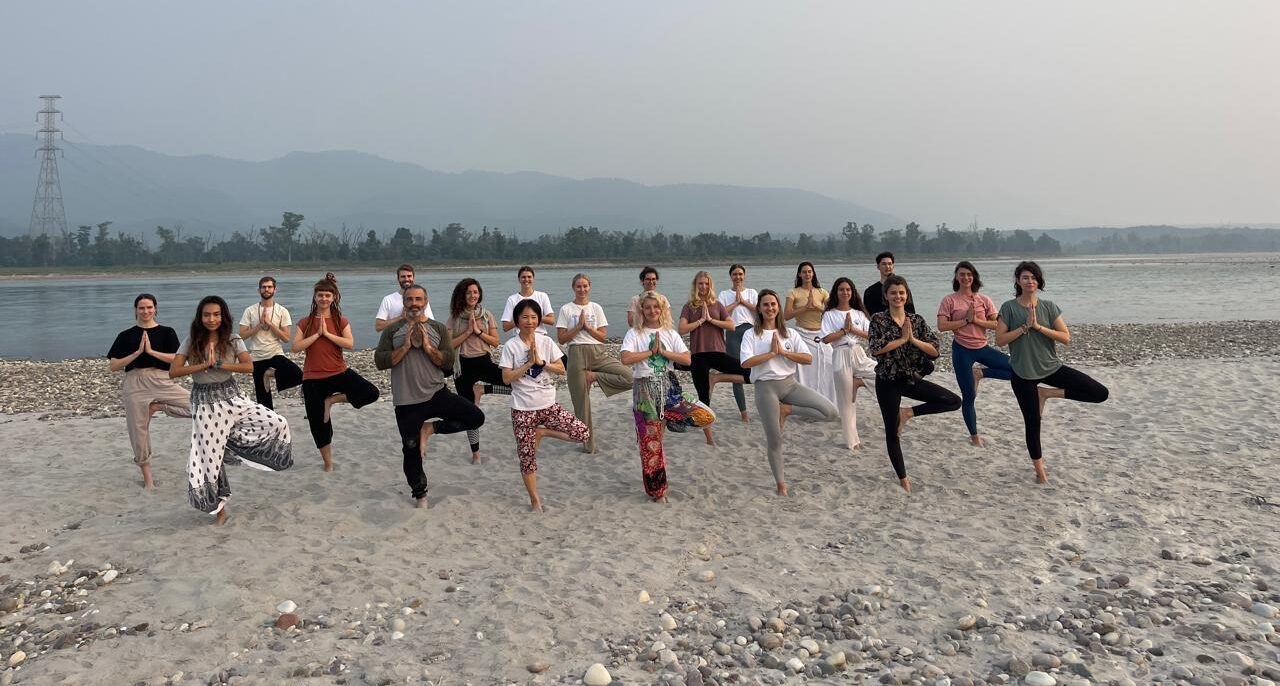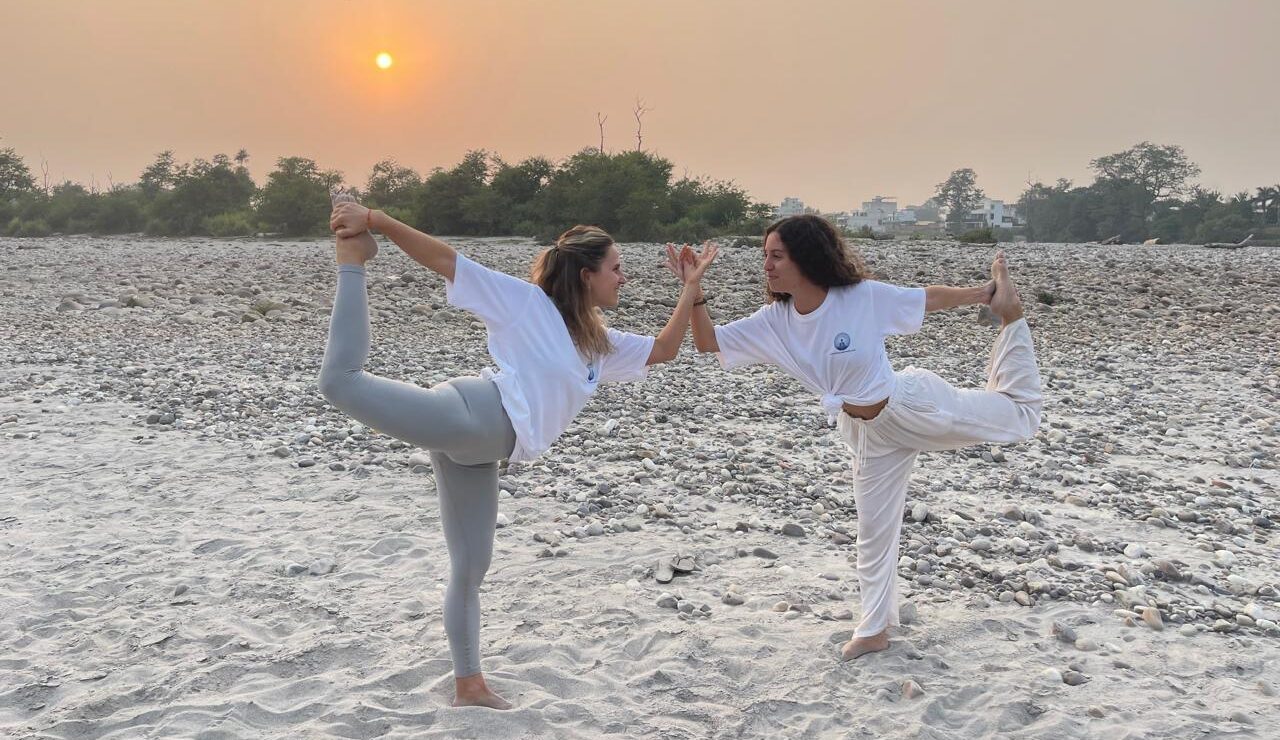
Winter brings a chill to the air, shorter days, and a slower pace. While the season can be cozy and magical, it can also bring challenges in terms of keeping your body warm, your mood uplifted, and your immune system strong. But don’t worry—yoga and Ayurveda provide time-tested wisdom to help you feel your best during the colder months.
In this article, we’ll explore how you can incorporate yoga and Ayurveda into your winter routine to stay balanced, healthy, and warm. These ancient practices are not just about physical health—they also address emotional well-being and mental clarity, giving you the tools to navigate winter with ease. If you’re wondering how to stay healthy and energized throughout the season, keep reading.
Understanding Winter from a Yogic and Ayurvedic Perspective
From an Ayurvedic viewpoint, winter is the season of Kapha dosha, which is associated with cold, heaviness, and moisture. The increased Kapha energy can lead to feelings of sluggishness, congestion, and even weight gain. Some people may also experience an imbalance in the Vata dosha (associated with cold and dryness), which can cause dry skin, joint pain, and anxiety.
To stay healthy during the winter, you need to balance these doshas. Yoga and Ayurveda help by promoting warmth, circulation, and mental clarity, countering the sluggishness that often comes with cold weather.

How to Stay Healthy During Winter with Yoga
Yoga is not just about physical fitness; it’s also a powerful tool to warm your body, boost your immunity, and lift your spirits. During the winter months, it’s important to focus on postures and breathing techniques that generate heat, stimulate digestion, and improve circulation.
- Warm-Up with Sun Salutations (Surya Namaskar)
One of the best ways to generate heat in your body is to practice Sun Salutations (Surya Namaskar). This dynamic sequence of yoga postures improves circulation, warms your muscles, and helps detoxify the body through sweat. Start your day with 8-12 rounds of Sun Salutations to build internal heat and energize yourself.
Sun Salutations are a great way to stay active indoors, especially when it’s too cold to exercise outside. The movements strengthen your muscles, improve flexibility, and leave you feeling refreshed and warm. - Heart-Opening Poses for Emotional Warmth
Winter can make us feel emotionally withdrawn or isolated, especially when the days are short and the nights are long. Practicing heart-opening poses like Camel Pose (Ustrasana), Bridge Pose (Setu Bandhasana), and Cobra Pose (Bhujangasana) can help combat feelings of sadness or lethargy.
These poses open the chest and improve lung capacity, allowing more oxygen into the body, which naturally generates warmth and boosts your mood. Heart-opening postures are also associated with the Anahata Chakra (heart chakra), which is linked to love, compassion, and emotional openness. - Detoxifying Twists for Energy
Twisting postures are perfect for winter because they aid digestion and help remove toxins from the body. Cold weather and heavy foods can slow down digestion, making you feel sluggish. Postures like Revolved Triangle (Parivrtta Trikonasana) and Seated Twist (Ardha Matsyendrasana) help keep your digestive system active and your energy levels up.
Twists stimulate the internal organs and improve circulation, which is essential for maintaining warmth and vitality during the colder months. - Pranayama (Breathing Exercises) to Boost Immunity
Breathing exercises, or Pranayama, are essential during winter to keep your respiratory system clear and your immune system strong. One of the best techniques to practice in winter is Kapalabhati (Skull Shining Breath). This fast, rhythmic breathing generates internal heat, clears the respiratory system, and improves lung function.
A study published in the Journal of Clinical and Diagnostic Research found that regular practice of Kapalabhati increases respiratory efficiency and helps reduce symptoms of congestion and respiratory issues, which are common in winter. - Meditation for Mental Clarity
Winter’s shorter days and reduced sunlight can sometimes lead to seasonal depression or feelings of low energy. To stay mentally balanced, incorporate meditation into your daily routine. A simple Mindfulness Meditation or Loving-Kindness Meditation can help reduce anxiety and bring mental clarity.
Meditating for just 10-15 minutes each day helps keep your mind focused, calm, and present. It’s a wonderful way to stay emotionally warm and grounded during winter.
How to Stay Healthy with Ayurvedic Tips for Winter
While yoga keeps your body warm and active, Ayurveda offers holistic solutions to maintain your health during winter. Ayurveda emphasizes living in harmony with nature, which means making adjustments to your diet and routine to stay balanced.
- Eat Warm, Nourishing Foods
Winter is the time to eat warm, cooked foods that are easy to digest. According to Ayurveda, foods that are warm, moist, and spiced help balance Kapha and Vata doshas. Focus on eating hearty soups, stews, and porridges, which not only provide warmth but also strengthen digestion.
Spices like ginger, turmeric, cumin, and black pepper are especially beneficial in winter. A study published in the Journal of Ayurveda and Integrative Medicine found that ginger and turmeric are powerful anti-inflammatory agents that also improve digestion and boost immunity.
Adding these warming spices to your meals can help stimulate digestion and promote overall health during the winter season.
- Stay Hydrated with Warm Beverages
It’s easy to forget about hydration in winter, but staying hydrated is crucial for how to stay healthy. Instead of cold water, opt for warm drinks like herbal teas made from ginger, cinnamon, or tulsi (holy basil). These beverages not only keep you warm but also help balance Kapha and support digestion.
Herbal teas also help keep your respiratory system clear and your immune system strong, both of which are essential during the cold and flu season.
- Self-Massage with Warm Oil (Abhyanga)
One of the most soothing Ayurvedic practices for winter is Abhyanga, or self-massage with warm oil. Massaging the skin with warm sesame oil or almond oil helps improve circulation, moisturize dry skin, and calm the nervous system.
Abhyanga is especially beneficial in winter because it combats the dryness and stiffness that can come with cold weather. Massaging warm oil into your skin before your shower not only keeps your skin soft but also generates heat, making you feel cozy and relaxed.
- Follow a Daily Routine (Dinacharya)
In Ayurveda, a daily routine (or dinacharya) is essential for maintaining balance. Having a consistent routine—waking up and going to bed at the same time, eating meals at regular intervals, and incorporating yoga and meditation—helps regulate your body’s internal clock.
A consistent routine helps combat the lethargy and sluggishness that can accompany winter. It also provides structure to your day, keeping you grounded and focused.
How Yoga and Ayurveda Boost Immunity During Winter
Winter is often associated with colds, flu, and weakened immunity. Fortunately, yoga and Ayurveda offer effective strategies to strengthen your immune system and keep you healthy throughout the colder months.
- Yoga for Immunity
Yoga helps reduce stress, one of the main factors that can weaken your immune system. Stress-relieving practices like Yoga Nidra and Restorative Yoga activate the parasympathetic nervous system (also known as the “rest and digest” system), which supports immune function.
A study in the International Journal of Yoga showed that regular yoga practice increases lymphocyte production, which helps the body fight off infections. Practicing yoga consistently during winter can therefore enhance your body’s natural defenses against illness. - Ayurveda for Immunity
Ayurveda recommends several natural remedies to boost immunity during winter. Chyawanprash, a traditional Ayurvedic jam made with amla (Indian gooseberry), is rich in vitamin C and antioxidants. Taking 1-2 teaspoons of Chyawanprash daily can help strengthen your immune system and protect against colds and flu.
Other Ayurvedic herbs like Ashwagandha, Tulsi, and Triphala are also highly effective in boosting immunity and promoting overall health.

Lifestyle Tips for Staying Warm and Balanced
In addition to yoga and Ayurveda, there are several lifestyle adjustments you can make to stay healthy and warm throughout the winter.

- Wear Layers and Stay Warm
Dressing appropriately is one of the simplest ways to stay warm during winter. Wear multiple layers of natural fabrics like wool, cotton, or fleece, which trap heat and keep you cozy. Keeping your head, neck, and feet warm is especially important for maintaining overall body warmth. - Get Sunlight Exposure
Whenever possible, make it a priority to get outside and soak up some natural sunlight. Sunlight helps regulate your circadian rhythm and boosts your mood by stimulating the production of serotonin. Even 10-15 minutes of sunlight exposure each day can make a big difference in your energy levels and mood. - Stay Active Indoors
When it’s too cold to go outside, find ways to stay active indoors. In addition to your yoga practice, you can incorporate simple exercises like walking, stretching, or even dancing to your favorite music. Staying active keeps your blood circulating, generates heat, and helps you stay energized.
The Importance of Sleep in Winter
Sleep is a key factor in maintaining how to stay healthy during the winter months. Shorter days and longer nights can naturally make you feel more tired. Getting enough rest is essential for keeping your immune system strong and your mind sharp.
- Create a Consistent Sleep Routine
Ayurveda recommends going to bed and waking up at the same time every day to regulate your body’s internal clock. Aim for 7-9 hours of sleep each night. This routine will help you feel more energized during the day and will support overall health. - Practice Yoga Nidra for Relaxation
Before bed, try practicing Yoga Nidra, also known as yogic sleep. This guided meditation helps relax the nervous system and prepare your mind and body for restful sleep. It’s a great way to reduce stress and unwind from the day.
By incorporating yoga and Ayurveda into your daily routine, you can stay warm, healthy, and balanced during the winter months. Whether it’s practicing Sun Salutations to generate heat, enjoying warm, nourishing foods, or following a consistent routine, these ancient practices offer powerful tools to support your well-being.
Stay consistent with your yoga practice, adopt Ayurvedic self-care routines, and follow a balanced lifestyle to not only survive but thrive in winter. With these tips, you can embrace the colder months with warmth, vitality, and joy.
Remember, the key to how to stay healthy during winter is to listen to your body, move mindfully, and nourish yourself with warming, wholesome practices.
